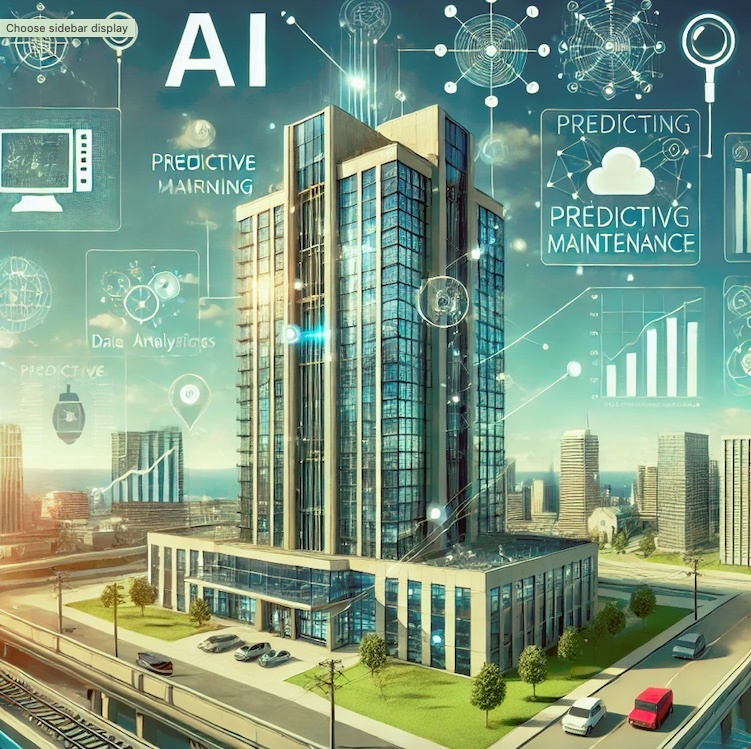In today's world, where buildings are becoming increasingly complex and multifunctional, the reliability of vertical transportation systems, such as elevators, takes on special importance. Elevator breakdowns can lead not only to significant repair costs but also to dangerous situations for users. In this regard, researchers and engineers are increasingly turning to artificial intelligence (AI) technologies to predict breakdowns and optimize maintenance.
Modern elevators are equipped with various sensors that monitor numerous parameters: temperature, vibration, loads, and other indicators. This data is collected and analyzed using machine learning algorithms, allowing for the identification of anomalies that precede breakdowns. For example, a sudden increase in vibration may indicate the need for parts replacement, giving technicians the opportunity to conduct preventive maintenance before a failure occurs.
Advantages of Using AI:
Some companies have already successfully integrated AI into elevator maintenance systems:
The use of artificial intelligence technologies in predicting elevator failures is not only an innovative step in vertical transportation maintenance but also an important contribution to user safety and comfort. With each passing day, we are getting closer to creating smart buildings where technology works for the benefit of people, ensuring their safety and comfort.
Thus, the future of vertical transportation is already here—and it starts with AI!
Modern elevators are equipped with various sensors that monitor numerous parameters: temperature, vibration, loads, and other indicators. This data is collected and analyzed using machine learning algorithms, allowing for the identification of anomalies that precede breakdowns. For example, a sudden increase in vibration may indicate the need for parts replacement, giving technicians the opportunity to conduct preventive maintenance before a failure occurs.
Advantages of Using AI:
- Cost Savings: Transitioning to proactive maintenance reduces repair costs and prevents costly elevator downtime.
- Increased Safety: The ability to predict breakdowns in advance helps avoid emergency situations and ensures passenger safety.
- Improved Service Quality: Consistent elevator performance enhances users' overall experience of buildings and their infrastructure.
Some companies have already successfully integrated AI into elevator maintenance systems:
- Thyssenkrupp: This company uses a platform called MAX, which is based on IoT (Internet of Things) and AI. MAX monitors the condition of elevators in real-time and analyzes data to predict when maintenance will be needed. For instance, in a large building in Germany where the MAX system was implemented, elevator downtime was reduced by 30%, significantly increasing user satisfaction.
- KONE: The Finnish company KONE employs a system called KONE 24/7, which collects data on elevator performance and uses AI to analyze potential malfunctions. In a project in Singapore, this system detected several hidden issues that were resolved before they led to serious breakdowns. This resulted in a 15% reduction in maintenance costs during the first year of system operation.
- Otis: Otis, one of the leading elevator manufacturers, developed the Otis ONE system, which provides real-time monitoring and analyzes data to predict breakdowns. In a pilot project in New York, several elevators equipped with this system were installed. Results showed that predictions about breakdowns helped avoid over 20% of unplanned repairs, significantly lowering maintenance costs.
- AI GEEKS: In addition to these industry leaders, AI GEEKS has also been developing projects related to elevator breakdowns. Our engineers worked on a project focused on predicting elevator failures in residential buildings and successfully developed a model that predicts failures with over 90% accuracy. This achievement highlights the potential of AI to enhance elevator reliability and improve overall safety in residential environments.
The use of artificial intelligence technologies in predicting elevator failures is not only an innovative step in vertical transportation maintenance but also an important contribution to user safety and comfort. With each passing day, we are getting closer to creating smart buildings where technology works for the benefit of people, ensuring their safety and comfort.
Thus, the future of vertical transportation is already here—and it starts with AI!
